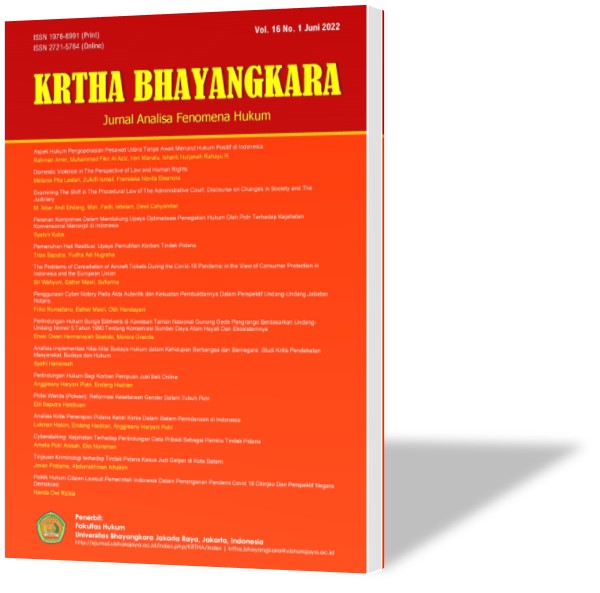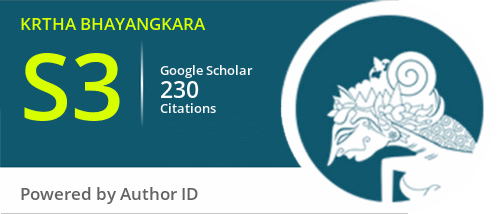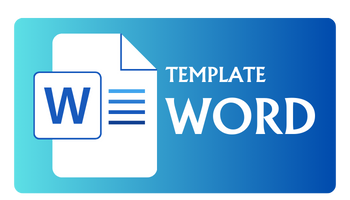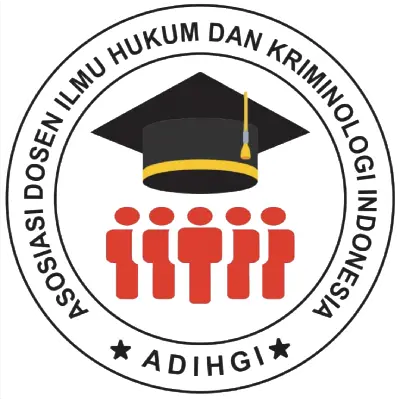Kebijakan Penerbitan Sertipikat Elektronik Pada Sistem Pendaftaran Tanah di Indonesia Untuk Mewujudkan Kepastian Hukum
DOI:
https://doi.org/10.31599/krtha.v17i1.827Keywords:
Electronic certificate, ownership of land rights, land disputesAbstract
The rapid advancement of technology and the emergence of various applications encourage everyone to take advantage of electronic-based services that aim to provide convenience for users. Everyone can access the information needed anywhere. Likewise in the land sector which has undergone digital transformation and implemented electronic-based land services in the form of electronic documents by imposing electronic land certificates regulated in the Regulation of the Minister of Agrarian Affairs and Spatial Planning/Head of the National Land Agency Number 1 of 2021 concerning Electronic Certificates. This study aims to provide legal certainty regarding the importance of changing documents proving ownership of land rights through digitalization because of the large number of multiple certificates and the land mafia which results in land disputes. To analyze this research, the writer uses a normative juridical approach that uses a document study search from statutory regulations. The results of the research from the author that the application of electronic land certificates is carried out in stages to meet the needs of the people in Indonesia. It is hoped that electronic certificates can provide protection and legal certainty to land rights holders and be able to provide resolution to land disputes.
References
Buku
P. Parlindungan, Pendaftaran Tanah Di Indonesia, Bandung: Mandar Maju, 2009.
Boedi Harsono, Hukum Agraria Indonesia: Sejarah Pembentukan Undang-Undang Pokok Agraria, Isi dan Pelaksanaannya (Jilid 1: Hukum Tanah Nasional), Jakarta: Djambatan, 1997.
Esmi Warassih, Pranata Hukum: Sebuah Telaah Sosiologis, Semarang: PT Suryandaru Utama, 2005.
I Made Pasek Dianta, Metodologi Penelitian Hukum Normatif Dalam Justifikasi Teori Hukum, Jakarta: Prenada Media Grup, 2016.
Irwansyah, Penelitian Hukum: Pilihan Metode dan Praktik Penulisan Artikel, Yogyakarta: Mitra Buana Media, 2020.
Luluk Lusiati Cahyarini, Widhi Handoko, Rekonstruksi Sistem Pendaftaran Tanah, Semarang: Unissula Press, 2020.
Soerjono Soekanto, Sri Mamudji, Penelitian Hukum Normatif, Jakarta: Rajawali Pers, 2019.
Sudikno Mertokusumo, Hukum dan Politik Agraria, Jakarta: Karunika-Universitas Terbuka, 1988.
Urip Santoso, Pendaftaran dan Peralihan Hak Atas Tanah, Jakarta: Prenadamedia group, 2010.
Artikel/Jurnal
Hikmahanto Juwana, Politik Hukum Undang-Undang Bidang Ekonomi Di Indonesia, Jurnal Hukum Vol. 01, No. 1 Tahun 2005.
Kebijakan Sertifikat Tanah Elektronik, KPA: Melanggar Aturan Lebih Tinggi, TEMPO.com, Jumat, 5 Februari 2021, 13.15 WIB.
Makalah
Maria S.W. Sumardjono, “Kepastian Hukum dan Perlindungan Hukum Dalam Pendaftaran Tanah”, Makalah Seminar Nasional Kebijakan Baru Pendaftaran Tanah dan Pajak-Pajak Yang Terkait: Suatu Proses Sosialisasi dan Tantangannya, Kerjasama Fakultas Hukum Universitas Gajah Mada dan Badan Pertanahan Nasional, Yogyakarta, 1997.
Peraturan Perundang-Undangan
Republik Indonesia, Undang-Undang Dasar 1945
Kitab Undang-Undang Hukum Perdata (KUHPerdata)
Republik Indonesia, Undang-Undang Nomor 5 Tahun 1960 Tentang Peraturan Dasar Pokok-Pokok Agraria (UUPA).
Republik Indonesia, Undang-Undang Nomor 11 tahun 2020 Tentang Cipta Kerja.
Republik Indonesia, Undang-Undang Nomor 11 Tahun 2008 Tentang Informasi dan Transaksi Elektronik dan Undang-Undang Nomor 19 Tahun 2016 Tentang Perubahan Atas Undang-Undang Nomor 11 Tahun 2008 Tentang Informasi dan Transaksi Elektronik.
Peraturan Pemerintah Nomor 24 Tahun 1997 Tentang Pendaftaran Tanah.
Peraturan Menteri Agraria dan Tata Ruang/ Kepala Badan Pertanahan Nasional Nomor 1 Tahun 2021 tentang Sertipikat Elektronik.
Peraturan Pemerintah Nomor 18 Tahun 2021 Tentang Hak Pengelolaan, Hak Atas Tanah, Satuan Rumah Susun dan Pendaftaran Tanah.
Downloads
Published
Issue
Section
License
Copyright (c) 2024 Esther Masri, Hirwansyah

This work is licensed under a Creative Commons Attribution 4.0 International License.



































